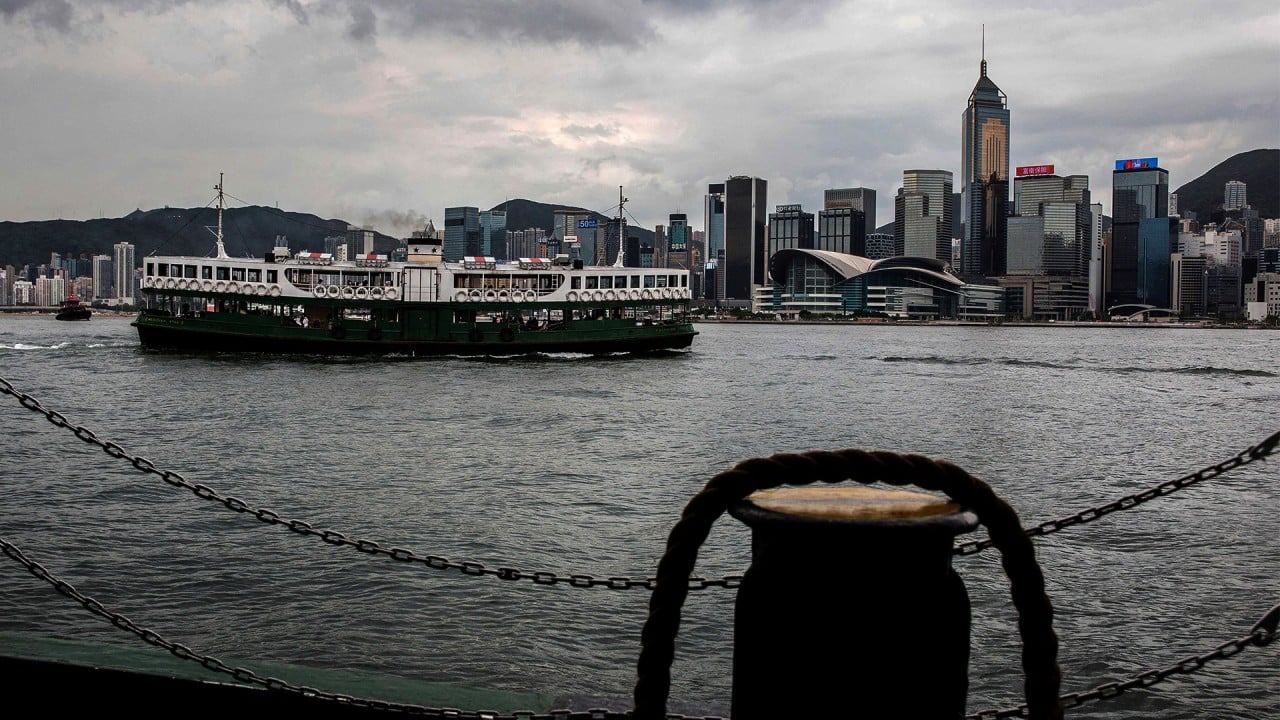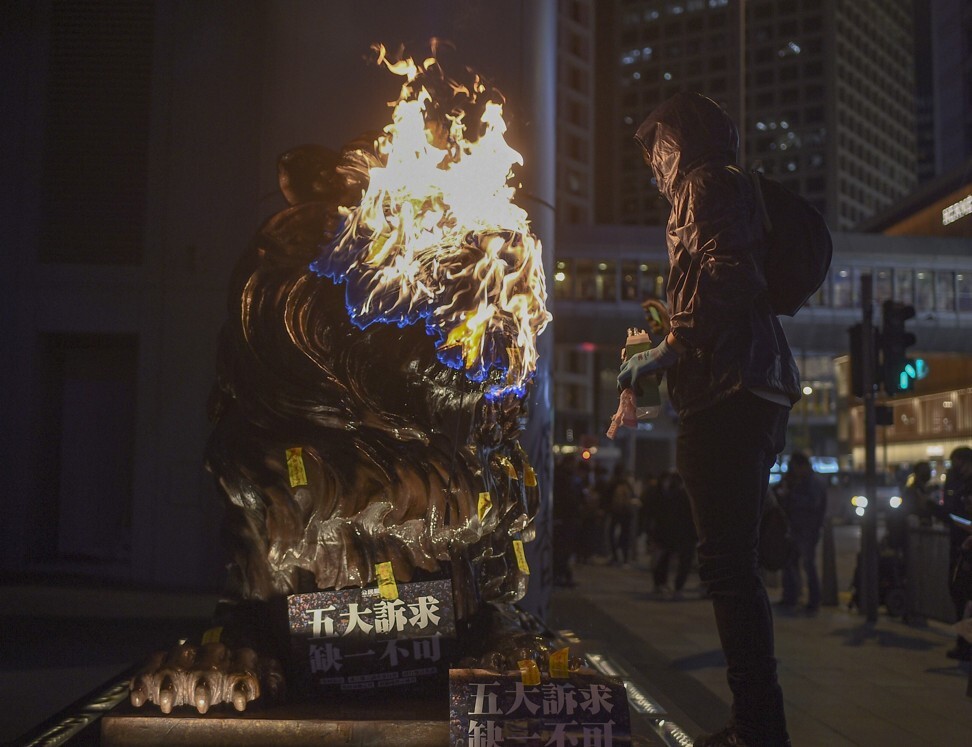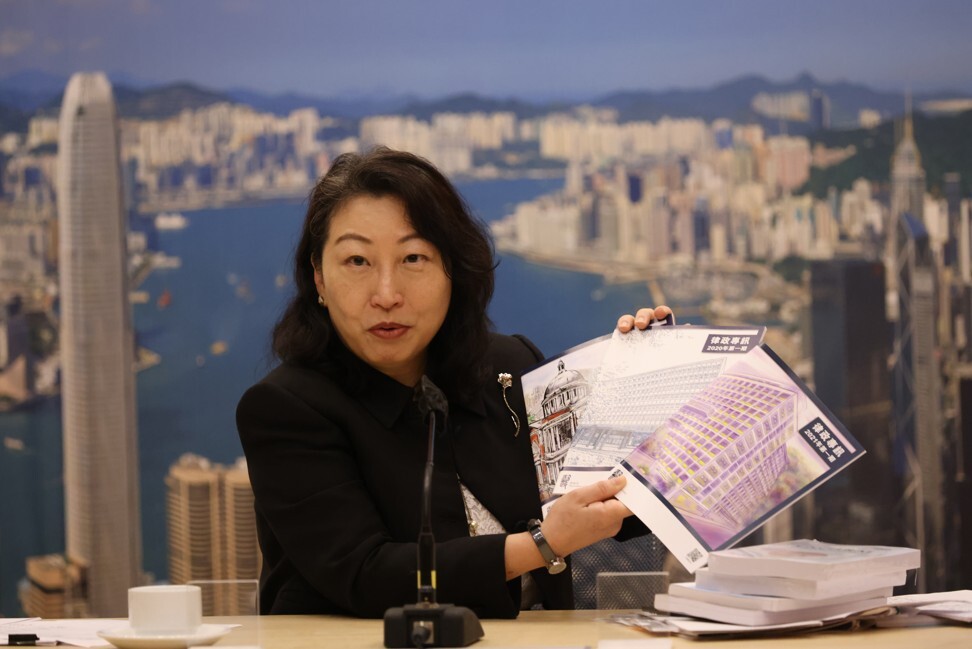
China’s anti-sanctions law raises risks for global banks and financial firms in Hong Kong
- Anti-sanctions law expected to be adopted into Hong Kong’s mini constitution as soon as Tuesday
- Uncertainties ahead for banks, insurers and asset managers betting big on China’s growth
The law, first adopted for mainland China in June, forms part of Beijing’s answer to the US government’s use of the American financial system – and the US dollar as the world’s dominant trade currency – to achieve political goals internationally through financial sanctions.
It gives the Chinese government, as well as private citizens and businesses, the legal basis to take countermeasures against foreign individuals and entities involved in “discriminatory restrictive measures” that Beijing says “violate international laws and basic norms”.
The question for banks and other financial institutions in Hong Kong is: can they still split the difference and not short circuit their access to the world’s two biggest economies?
Will banks find enough room to manoeuvre in Hong Kong’s anti-sanctions law?
“The biggest risk is that once such a system is in place there is a high likelihood it is going to be used, especially if the relations don’t fundamentally change, which is kind of hard to imagine in light of current political relations.”
Last month, the US State Department cited the anti-foreign sanctions law, as it is known in China, as one of several recent developments that present “clear operational, financial, legal and reputational risks” to American companies operating in the city.

02:03
US warns American companies about operating in Hong Kong, sanctions 7 Chinese officials
Those risks are overblown and the anti-sanctions law will provide more clarity for businesses in the city, a Hong Kong government official said.
“After the introduction of the anti-sanctions law in Hong Kong, individuals and companies will have certainty on how to respond to the US sanction regulation. For example, banks can no longer use US sanctions as a reason not to provide banking services to individuals under the sanction lists,” the official, who asked not to be identified, told the Post.
“I’m not pretending it’s easy. We’ve navigated that in the past and we’ll continue to do so going forward.”

Both HSBC and Standard Chartered have spent billions of dollars to bolster their compliance functions after paying multibillion-dollar penalties to American authorities related to failures in their anti-money-laundering controls and compliance functions.
“We comply with local law everywhere we go,” Bill Winters, the Standard Chartered CEO, said in an interview last week.
Evaluating whether a company is subject to sanctions is an important part of the compliance process at Amundi, Europe’s largest asset manager with €1.79 trillion (US$2.1 trillion) in assets, according to Esther Law, Amundi’s senior investment manager for emerging markets debt in London.
“If we have to respond by divesting an entity, the macro fundamentals of that particular country involved would deteriorate,” said Law. “But we could also argue that a lot of these risks are already priced in. For example, during the Trump administration sanctions and verbal conflicts were part of our lives, so [sanctions or anti-sanctions laws are] nothing new.”
One solution for international companies may be setting up a local entity to serve just their Hong Kong and mainland businesses, allowing them to comply with the new anti-sanctions rules, the government official said.
However, it might not be such a straightforward decision for multinational companies, particularly financial firms that need to regularly access the US financial system, legal experts said.
“If I’m a company that has significant ties to both spheres, I’m trying to decide if it’s possible for me as a company to say that the US sanctions don’t apply to some of the business that I’m doing in Asia and, therefore, I don’t have to implement or be required to implement the US sanctions when I’m dealing in Hong Kong,” said Scott Flicker, the chair of Paul Hastings’s Washington office and leader of the law firm’s global trade controls practice. “I don’t see how a business can slice things that finely.”
One example of the dilemma facing international financial companies operating in Hong Kong is State Street Global Advisors, the manager of the city’s Tracker Fund, which mirrors the benchmark Hang Seng Index.

In January, the Hong Kong arm of Boston-based State Street initially said it would exclude the stocks of three Hang Seng companies blacklisted by the US only to back down, as it faced criticism from Hong Kong heavyweights such as former Hong Kong Monetary Authority CEO Joseph Yam Chi-kwong.
It would be unrealistic to expect banks and businesses in Hong Kong to simply ignore US sanctions, said Tamer Soliman, global head of export control and sanctions practice at Mayer Brown’s Washington office.

The Chinese and Hong Kong governments are likely to factor in what kind of signals they are sending to the broader financial markets when it comes to how the anti-sanctions law would be implemented, he said.
“The reality is that we have not seen any Hong Kong financial institutions being sanctioned by the US or penalised under Chinese anti-foreign sanctions measures to date, and this likely reflects recognition by both governments of the broader implications for their financial systems,” said Soliman. “There are reasons we have seen both governments take a measured approached so far.”

One party that may benefit from the introduction of the law is local brokers and asset managers. It may make it easier for them to invest freely in mainland companies without worrying about US sanctions, according to Tom Chan Pak-lam, chairman of the Institute of Securities Dealers of Hong Kong, an industry body.
For instance, many local brokers stopped serving US customers in 2014 after the introduction of the Foreign Account Tax Compliance Act in 2014, which instituted greater reporting requirements for overseas holdings by American citizens. They also do not have many US clients, as a result.

“After the anti-sanctions law is introduced, financial firms will need to choose how to comply with the new regime. For the local firms that do not have US exposure, they will simply follow the Hong Kong law and regulation,” he said.
“It would be better for Hong Kong to introduce the anti-sanctions legislation locally, as the local version of the legislation can add in provisions that can address the Hong Kong-based US or other international financial firms’ concerns and special needs,” said lawmaker Christopher Cheung Wah-fung, who represents the financial services sector and is also CEO of Christfund Securities.
Without local legislation, Hong Kong has to follow the mainland Chinese version of the anti-sanctions law and that may not be suitable for Hong Kong.
“Hong Kong is an international financial centre with many US companies. They will face difficulties on how to follow both the US and mainland sanctions laws. We need to take care of their needs and concerns,” Cheung said.

“I am very certain that there will be foreign forces, such as governments and media outlets, that will hype the issue up and use it as an excuse to weaken the city’s status as a financial centre, or others’ confidence in the city,” Lam said.
The big question lingering for executives at global financial institutions and other international companies operating in Hong Kong is how much of the law is a signal to the US to back off, and how much of it is a signal that Beijing intends to crack down hard on companies that comply with American sanctions.
“The risk-reward, if you move too fast on multinational corporations or international financial services, is you could have blowback on China,” said Julia Friedlander, deputy director of the Atlantic Council and a former senior policy adviser in the US Treasury Department’s Office of Terrorism and Financial Intelligence.



